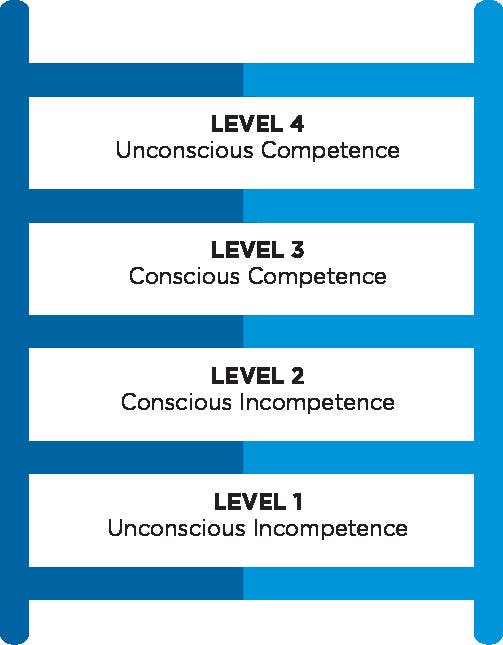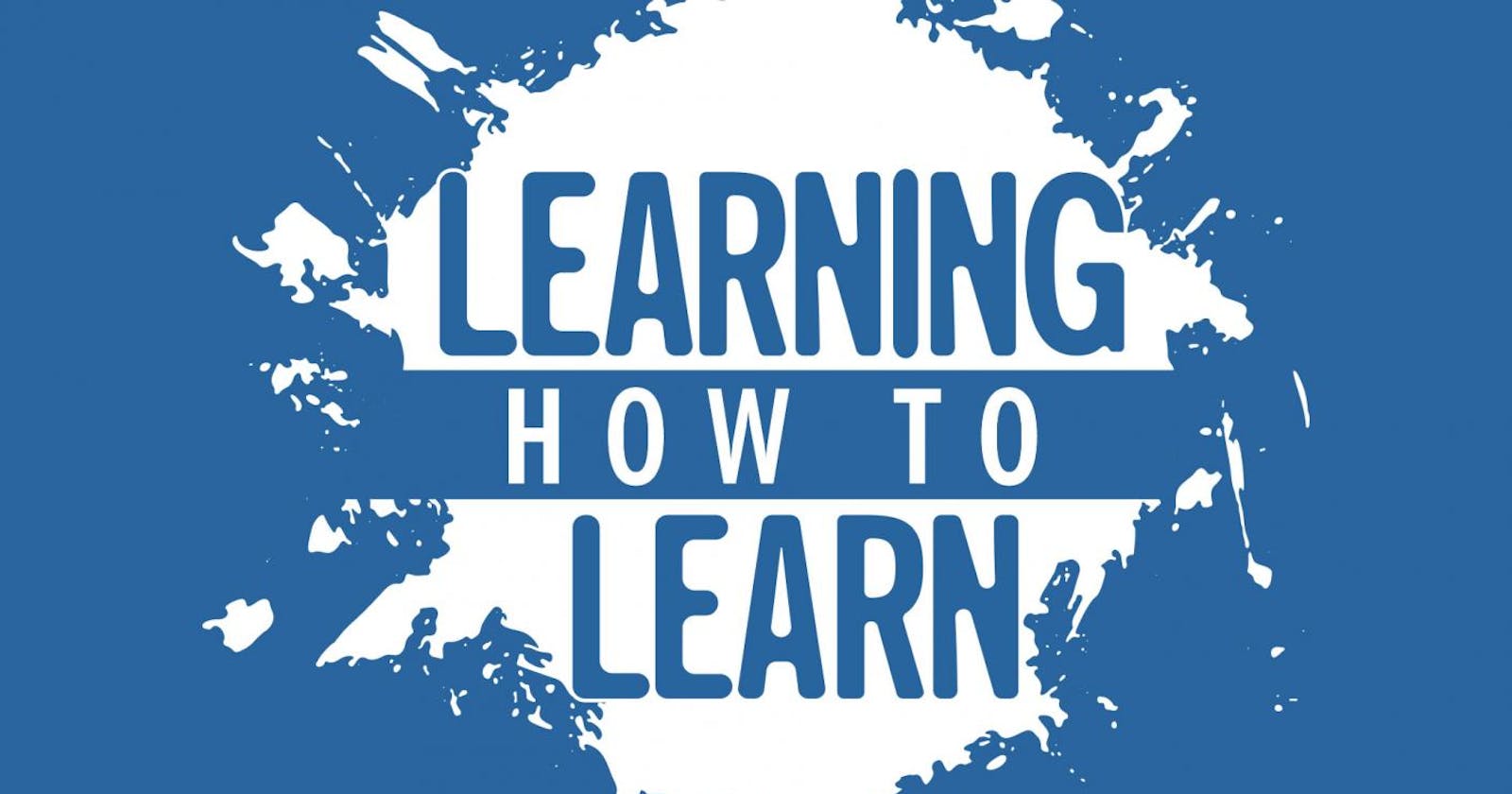Learning in any technological track can be challenging, especially in a world where technology keeps changing. Each single day, a new programing framework is developed, a newer version of software released, recruiters come up with new hiring standards, and the market shifts demand for certain tech experts. This is overwhelming to new comers in the field, and even others who have been in tech for long but need to keep up with the constantly changes.
The aspect of constant technological advancement brings out the essential questions which this article intends to answer: how do we keep up with the changes in technology? How do we get away from the pressure of new innovations everyday? How do we get the knowledge required to be viable in the tech market? What do we need to learn? How do we know what we need to be knowing?
Phases of Knowledge Acquisition
In any learning track, there are 4 phases of knowledge acquisition.

1. Unconscious incompetence
In this phase, the individual does not understand how to do something and doe not recognize the knowledge gap in the field. They are unaware of their incapacity in a certain field and do not understand what they need to know.

2. Conscious incompetence
The person is aware of the knowledge gap that exists and they understand the importance of gaining this skill. They know what pathways they need to follow in order to become skilled in the field they want. They understand the concepts required. They start learning these concepts and obtaining knowledge on the skill.
3. Conscious competence
This is the ultimate knowledge and skill acquisition stage. The individual has learned how to use their knowledge to perform a task. They now understand how they can use a certain language to make a website, to make an android application.
4. Unconscious competence
This phase is developed with intense practice with the skills. It is where the individuals has grown so accustomed to the task that it becomes natural, almost habitual. They are able to face off any challenges in the given field and can navigate easily through it.
Getting from level 1 to level 4
Going from knowledge gap to mastery of a skill can be quite challenging. It is especially hard when you don't understand what you need to know and are stuck in level 1.
The concept of flipped classroom learning, commonly known as inverted learning can be used to move from unconscious incompetence to conscious incompetence.
Inverted Learning
Assuming you want to learn about programming and have no idea where to start or what you need to learn, this learning approach can be helpful. Firstly, you need to take a step back and review any knowledge you have about programming.
Ask yourself: What do I know about programming? Have I interacted with this field? If so, how? What have I seen others do in relation to this field? Why do I want to learn it? How am I going to use the knowledge I obtain from learning this skill?
This questions will provide you with a broad perspective of what is expected from the field and what you need to know. You will obtain an idea on general concepts behind programming and get a standpoint from where you can start your learning process based on what you intend to achieve. You will move from the unconsciously incompetent phase to conscious incompetence level.
Moving from level 2 to level 4 is easy when following the learning track.
The Learning Track
Information track -> skills track -> innovation track
1. Information track
In the information track, one gathers foundational knowledge about their skill of interest. They take a step back and review the field on a broader perspective. They begin from foundational information such as understanding how a computer processes information, how the computer memory works, and how software is run on the computer, etc.
In the information track, one navigates through the background of the field they want to focus on. They look at its history, its development, and how it has changed over time. This track is important because in understanding the concepts behind a field, it is easier to navigate through it.
2. Skills track
Once you have gained an understanding of the background and major concepts behind your field of focus, you can begin the skill acquisition track. This is where you focus on the specific field of interest and learn all you can about it. You will need to understand the field from its heart whether its through YouTube tutorials, podcasts, practice tutorials, undertaking a project, or any other learning path you are most comfortable with.
3. Innovation track
With some skills on the field, you can start innovating.
Innovation in this aspect is defined as the ability to pick something which is already working and improve it, or do something not done before.
In this track, the mentality of I can't touch the code I copied because it might not work is broken. You become innovative and start understanding the ideas behind the general code. You are able to read a line of code online, understand it, and come up with your own way of solving the same problem. You have the skill to manipulate a code to do what you want.
Intensive practice on the innovation track is what makes one become unconsciously competent. It is what drives one to be called a master or an expert in a certain field.
Among the three learning tracks, the information phase is the most essential in helping one keep up with technological advancement. Once one understands the background and foundation of a certain track, it is easier to navigate through any changes. The individual is able to keep up with any shifts because they have a perspective of where the change comes from. The information track will help one escape the pressure of tech advancement.

Moving from a beginner to an expert is not an easy job. It may take months, or even years before you become confident enough to consider yourself skilled in a certain field. However, don't take any progress you make on the field lightly. Learning a new skill everyday takes commitment and self-discipline which you should strive to have.
To learn more on the topic check out a session we had on the same Learning How To Learn.
Article written by Esther Mueni

